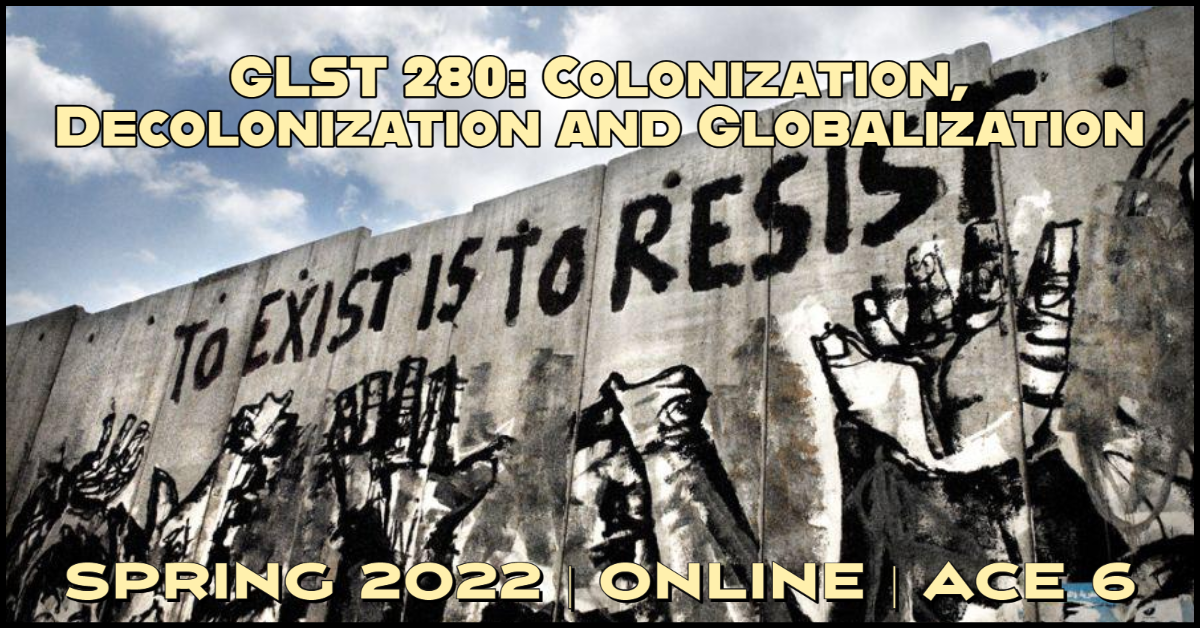
Course Description:
This course examines the processes of colonization and decolonization that define the making of a modern, integrated and globalized world (c. 1500 to the present). “Coloniziation” may refer to any process by which an entity (plant, animal, human society) transfers and establishes itself in an area of a different character. Human have migrated and colonized new areas since we first left Africa and we continued to do so throughout human history, at times to previously uninhabited areas and at times adjoining, displacing or subordinating existing populations. Throughout much of human history colonization has meant the spread and exchange of cultures, the development of trade networks, war, subjugation and exploitation of different ethnic and racial groups, and the construction and decline of empires. In this class, however, we examine colonialism and colonization as trans-historical and as fundamentally different kind of cultural oppression and economic control that came into practice with European 16th century expansion.
Although much of human history is marked by colonization and building of empires, in this course we focus on and critically examine the spread of European influence and hegemony throughout the world from the age of discovery in the late fifteenth and sixteenth century to the era of decolonization after World War II and postcolonial realities of the present. European colonialism is composed of two forms according to Ziltener and Kunzler, including a) domination by people over other people, and b) intergroup domination, subjugation, oppression and exploitation. We will begin the course by analyzing a variety of theories about European colonialism and imperialism, but the bulk of the course will concentrate on the experiences and practices of European colonialism. We will also examine the processes and contents of social and cultural contact and exchange, the development of knowledge, and how they shape relations of power; the place of colonialism in the development of western capitalism; and the elements of colonial power and resistance, including ideologies of liberal political philosophy, social Darwinism, and nationalism. Students will also consider how nationalist movements (born out of anti-colonialism struggle) worked to either include or exclude various groups involved from their discourses and projects, how a variety of actors resisted these prescriptions and tried to pursue different agendas, and how these struggles shaped society, politics, and state-building in postcolonial societies. We will also think about how ideas about civilization, religion, self and other, and freedom have evolved over time and shaped the making of the modern world.